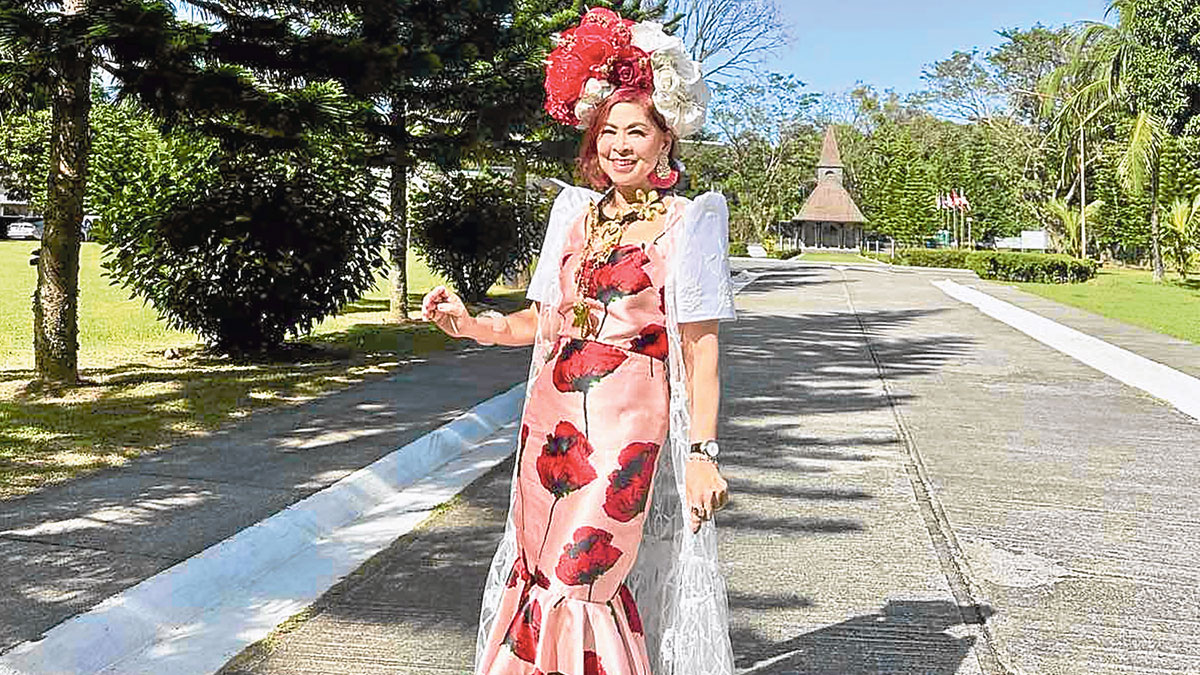
Gilda Fernando and Joven Cuanang are so outrageous that when they cook up something together people have little choice but to stop and take notice.
I should come clean right now and say that both are good friends of mine, so this piece comes with more than a friendly bias on my part.
To introduce them (as if they need any introduction at all), Gilda is a writer and publisher, and for years has been such a keen observer of Philippine culture to the extent that she has become a cultural icon herself.
So “way out” are her ideas that she is impossible to ignore.
In Gilda’s case, “way out” is used in the most respectful but totally irreverent manner because with Gilda one never knows what she will do next.
Joven has a daytime job as a respected neurologist and the medical director at St. Luke’s in Quezon and Taguig cities.
On his off-hours (or “on” hours?), Joven putters around his Pintô Galery in Antipolo, personally organizing art events that launch young artists, and curating his massive personal art collection that spills out of his galleries into his lush, hillside tropical garden which he is super proud of.
The structures sprawling down the hillside amid the splendid garden sweep into an unobstructed view of Manila beyond the Antipolo hills are among the more distinctive settings in the city.
He also oversees his heritage resort, Sitio Remedios, on the Currimao seashore in Ilocos Norte, where he vows the best home-cooked meals in the Ilocano region are served. There is also is his Tagaytay house to add to his extracurricular activities.
Gilda and Joven came up with a brainchild: Wheelchair Art. Who would have ever thought of that?
On a Saturday afternoon, they gathered a host of artist-designed wheelchairs at the covered plaza of Mind Museum in Bonifacio Global City. And then they paraded all the wheelchairs of fancy around Burgos Circle.
Physical therapists in hospital uniforms pushed the wheelchairs; people rode them; artists walked beside their creations; guests paraded; and onlookers joined in on the fun.
What a sight it was.
A wheelchair with huge golden wings waited quietly for someone to push it to gather enough speed for the wings to spread and take to the sky.

Another wheelchair, pragmatically functional, had a stainless-steel pole flying like an antenna above it, a bottle of dextrose hanging on the pole, and its plastic drip tube winding around and around until becoming the wheelchair’s arms and seat.
Kidlat Tahimik, child of the Cordillera, arrived in a loincloth pushing his wheelchair, a creation fusing a rattan-woven tikbalang-like creature to the rattan seat and arms of his wheelchair.
There were rickshaw wheelchairs; wheelchairs resembling wooden Cebuano tartanillas with Chinese detailing on their canopies; one with a web of red coral-like tentacles; another a wheelchair for two that looked like a wood polychrome colonial antique frame.
Wheelchair concepts were totally unrestrained. Some were filled with banners, others with architectural details; and an interesting one was fitted out as a chariot with a red papier-mâché horse head in front.
Indeed, they were wheelchairs of fancy, each one of them.
The idea of fusing art to wheelchairs was as arresting as it was amusing. The short parade around the circle was a music-and-laughter-filled fiesta, and everyone there, whether artist or spectator, was happy.
It was a fun afternoon.
Gilda and Joven gave all the credit for the success of the event to the participating artists.
“All I did,” Gilda said, “was to give them the idea, and the artists did the rest.”
When the season of their lives require some people to have wheelchair assistance to get around, artist-designed wheelchairs may not be the right thing for everyday use, but wouldn’t it would be fabulous to see a brave soul or two going about being wheeled in his or her own personalized, artist-designed wheelchair?
What a way to go.
Please e-mail your comments and feedback to [email protected].













































